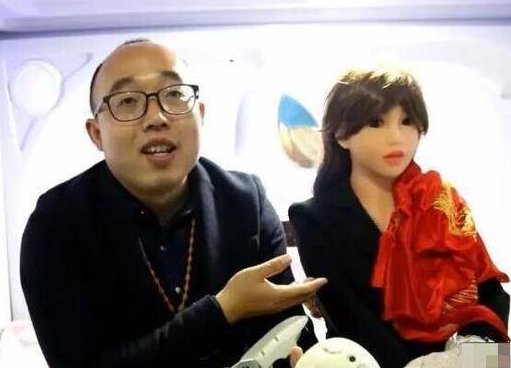Zheng Jiajia, 31, decided to marry with a robot after failing to find a human spouse, his friend told Qianjiang Evening News.
在找不到一个人性配偶后,31岁的郑佳佳决定与一个机器人结婚,这是他的朋友向《钱江晚报》透露的。
Zheng had also become tired of the constant nagging from his family and pressure to get married, so he turned to a robot he built late last year and named Yingying.
郑某也厌倦了家人的唠唠叨叨和被催婚的压力,于是在去年底开发了一个机器人,并将其命名为莹莹。
After two months of "dating", he donned a black suit to "marry" her at a ceremony attended by his mother and friends last weekend in the eastern city of Hangzhou.
在经过两个月的“约会”后,他身着黑色西装,于上周末在杭州东部的一个城市和莹莹举行了婚礼,他的母亲和朋友出席了仪式。
While not officially recognised by the authorities, the union had all the trappings of a typical Chinese wedding, with Yingying's head covered with a red cloth in accordance with local tradition.
虽然没有得到当局的正式认可,但这个联姻完全按照典型中国婚礼的规矩来进行,莹莹的头部按照当地的传统用红布覆盖。

China has one of the worst gender gaps in the world, mainly due to sex-selective abortions after the introduction of the country's widely criticised one-child policy, which for decades controlled how many children each family could have.
中国是世界上性别差距最大的国家之一,这主要是由于几十年来广受批评的独生子女政策,该政策控制了每个家庭可以拥有的孩子数量,并导致了性别选择性堕胎。
There are 113.5 men for every 100 women in China, according to the latest figures published by the World Economic Forum. The gender imbalance, coupled with changing attitudes towards marriage among the country's middle class, means many men will never find wives.
根据世界经济论坛发布的最新数据显示,中国每100名女性对应了113.5名男性。性别不平衡,加上中产阶级对婚姻态度的改变,意味着许多男人将永远找不到妻子。
For now Yingying can only read some Chinese characters and images and speak a few simple words, but Zheng plans to upgrade his "bride" to be able to walk and do household chores. Until then he has to carry the 30kg robot to move her.
现在莹莹只能阅读一些汉字和图片,并且说几句简单的话,但郑先生计划要升级他的“新娘”,令她能够走路和做家务。在此之前,这个30公斤的机器人妻子必须靠他来移动。













